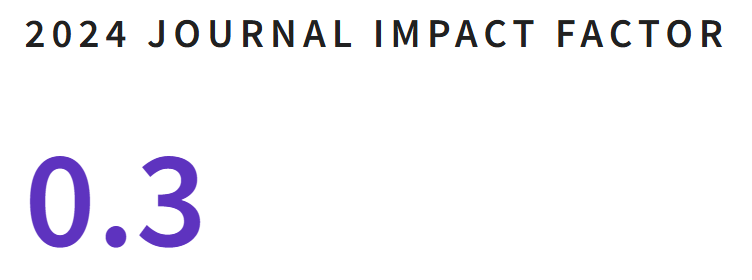Does the commitment to the community influence the self-efficacy of municipal workers?
DOI:
https://doi.org/10.35588/gpt.v15i44.5644Keywords:
self-efficacy, commitment to the community, municipal workerAbstract
The importance of commitment to the community lies in a need for retribution and awareness of the common welfare. That is, that organizations recognize that they are responsible with the environment where they develop (Reyna, 2021). This research seeks to know if the commitment to the community influences the self-efficacy of municipal workers. A community engagement and self-efficacy survey was applied where a sample of 164 employees was obtained. For data analysis, a descriptive study, multivariate analysis, internal consistency, confirmatory factor analysis and structural equation models were performed. According to the results obtained, it is concluded that with a greater commitment to the community, greater self-efficacy can be obtained. The workers have positive perceptions of how the company links with the different instances of support for the community and those who make it up, in addition to the fact that the level of perceived work self-efficacy is high in all groups of workers.
Downloads
References
Acción Empresas. (2003). El ABC de la Responsabilidad Social Empresarial en Chile y en el mundo. Santiago, Chile. 11-13. https://docplayer.es/9063045-El-abc-de-la-responsabilidad-social-empresarial-en-chile-y-en-el-mundo-empresarial.html
Acción Empresas. (2017). Inversión social estratégica y productividad: una relación a fomentar. Santiago, Chile. 8-27. https://accionempresas.cl/content/uploads/documento-inversion-social-1.pdf
Arias, H. (2003). Estudio de las comunidades. Comunicación y comunidad. La Habana: Editorial Félix Varela.
Bandura, A. (1995). Exercise of personal and collective efficacy. En: Bandura, A. (ed.) Self – efficacy in Changing Societies. EEUU: University of Cambridge, 1-45.
Bandura, A. (1997). Self-Efficacy. The Exercice of Control. New Cork: W. H. Freeman and Company.
Barroso, F. (2008). La responsabilidad social empresarial: Un estudio en cuarenta empresas de la ciudad de Mérida, Yucatán. Contaduría y administración, (226), 73-91. http://www.scielo.org.mx/scielo.php?script=sci_arttext&pid=S0186-10422008000300005&lng=es&tlng=es.
Blanco, H., Martínez, M., Zueck, M. y Gastélum, G. (2011). Análisis psicométrico de la escala autoeficacia en conductas académicas en universitarios de primer ingreso. Revista Actualidades Investigativas en Educación, 11(3), 1-27 https://www.redalyc.org/pdf/447/44722178003.pdf
Chiang, M., y Rebolledo, R., (2020). Autoeficacia: sus efectos en la satisfacción laboral y compromiso organizacional. Caso funcionarios de la salud. Revista Salud de los trabajadores, 28(2), 123-134. http://servicio.bc.uc.edu.ve/multidisciplinarias/saldetrab/vol28n2/art03.pdf
Chiang, M., Cartes, T. y Sánchez, R. (2013). La relación entre el compromiso con la comunidad y la motivación. Panorama Socioeconómico, 31(47), 17-31. https://www.redalyc.org/pdf/399/39930097003.pdf
Chin, W. (1998). The partial least squares approach to structural equation modeling. In G. A. Marcoulides (Ed.), Modern methods for business research, (pp. 295–358). Mahwah, NJ: Erlbaum.
Comisión de las Comunidades Europeas. (2001). Libro Verde: Fomentar un marco europeo para la responsabilidad social de las empresas, 12-13 https://www.europarl.europa.eu/meetdocs/committees/deve/20020122/com(2001)366_es.pdf
Díaz, N. (2015). La creación de valor compartido: estrategia de sostenibilidad y desarrollo empresarial. Cultura Latinoamericana, 22(2), 207-230. https://editorial.ucatolica.edu.co/index.php/RevClat/article/view/1629
Fernández, L. y Gutiérrez, M. (2013). Bienestar Social, Económico y Ambiental para las Presentes y Futuras Generaciones. Información Tecnológica, 24(2), 121-130 https://scielo.conicyt.cl/pdf/infotec/v24n2/art13.pdf
Giraldo, A., Toro, M., Macías, A., Valencia, C. y Palacio, S. (2010). La Promoción De La Salud Como Estrategia Para El Fomento De Estilos De Vida Saludables. Revista Hacia la Promoción de la Salud, 15(1), 128-143. https://www.redalyc.org/articulo.oa?id=309126693010
Hernández, R., Fernández, C., y Baptista, P. (2014). Metodología de la investigación (6a. ed. --.). México D.F.: McGraw-Hill.
Landy, F. y Conte, J. (2005). Psicología industrial: Introducción a la psicología industrial y organizacional. México: McGraw-Hill.
Morello, G. (2008). La importancia del compromiso con la comunidad. La Nación. https://www.lanacion.com.ar/economia/campo/la-importancia-del-compromiso-con-la-comunidad-nid1065148/
Olivari, C. y Urra, E. (2007). Autoeficacia y conductas de salud. Ciencia y enfermería, 13(1), 9-15. DOI:10.4067/S0717-95532007000100002
Pajares, F. (1996). Self-efficacy Beliefs in Academic Settings. En Review of Educational Research (pp. 543 – 578). En: Riding, R. & Rayner, S. (Editores). Perception (pp. 239 – 266). Londres: Ablex Publishing.
Pérez, J. y Gardey, A. (2014). Definición de responsabilidad social empresaria. Definición. https://definicion.de/responsabilidad-social-empresaria/
Reyna, S. (2021). Por qué es importante el compromiso social. Rotary International. https://www.crsannicolas.org/porque-es-importante-el-compromiso-social#:~:text=El%20compromiso%20social%20es%20uno,fruct%C3%ADfera%20y%20de%20convivencia%20armoniosa.
Rosas, J. (2010). Estudio del área de compromiso con la comunidad: medición, relación y efecto con el plan de manejo frente a emergencias ESSBIO S.A. y su respuesta ante el terremoto Tesis para Optar al Título de Ingeniero Comercial, Universidad del Bío Bío, Chile.
Rossi, T., Trevisol, A., Santos, D., Dapieve, N. y Hohendorff, J. (2020). Autoeficacia general percibida y motivación para aprender en adolescentes de educación media. Acta Colombiana de Psicología, 23(1), 264-271. DOI:10.14718/acp.2020.23.1.12
Rozalén, M. (2006). Creencias de autoeficacia y coaching. Como mejorar la productividad de las personas. JIMCUE´09 - IV Jornadas Internacionales Mentoring & Coaching: Universidad-Empresa, 22-45. http://gc.scalahed.com/recursos/files/r161r/w24709w/02_22-45_Coaching_Creencias.pdf
Sanjuán, A., Pérez, M. Y Bermúdez, J. (2000). Escala de autoeficacia general: datos psicométricos de la adaptación para población española. Psicothema, 12(2), 509-513. https://www.psicothema.com/pdf/615.pdf
Schwarzer, R. y Fuchs, R. (1995). Changing risk behaviors and adopting health behaviors: The role of self-efficacy beliefs. En A. Bandura (Ed.): Self-efficacy in changing societies. New York: Cambridge University Press.
Yevilao, A. (2020). Autoeficacia: un acercamiento al estado de la investigación en Latinoamérica. Revista Reflexión E Investigación Educacional, 2(2), 91–102. http://revistas.ubiobio.cl/index.php/REINED/article/view/4124
Zimmerman, B., Kitsantas, A. y Campillo, M. (2005). Evaluación de la Autoeficacia Regulatoria: Una Perspectiva Social Cognitiva. Revista Evaluar, 5(1), 01–21. DOI:10.35670/1667-4545.v5.n1.537










